When planning an East African safari adventure, most travelers instinctively gravitate toward the world-renowned destinations of Kenya and Tanzania. With their iconic Masai Mara and Serengeti plains featuring prominently in nature documentaries and travel magazines, these countries have long dominated the safari landscape. However, nestled between them lies Uganda—often overlooked yet offering extraordinary wildlife experiences, cultural encounters, and natural landscapes that rival its more famous neighbors. For the discerning traveler seeking authentic experiences away from the crowds, Uganda presents a compelling alternative that delivers the essence of Africa with distinctive advantages.
Beyond the Safari Crowds: An Intimate Wildlife Experience
The Numbers Tell the Story
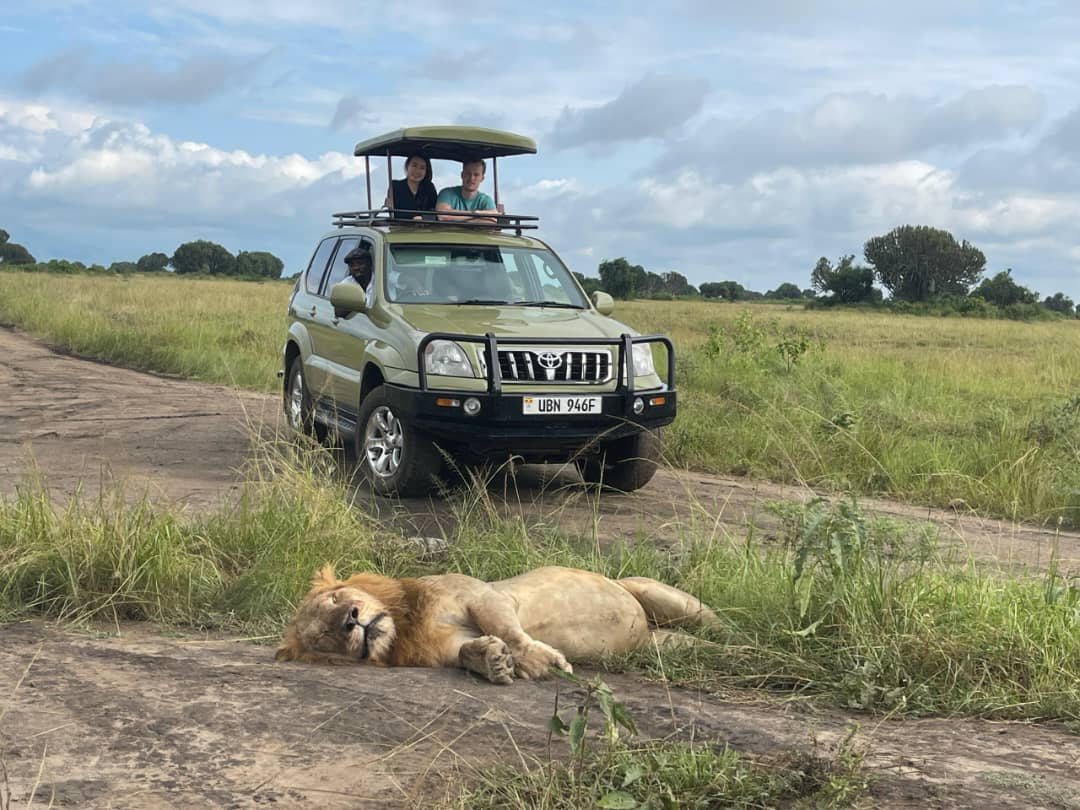 Tanzania and Kenya receive approximately 1.5 million and 2 million international tourists annually, respectively, with a significant portion visiting their flagship national parks. By contrast, Uganda welcomes roughly 500,000 foreign visitors yearly, distributing them across its diverse protected areas. This stark difference translates to tangible benefits for visitors:
Tanzania and Kenya receive approximately 1.5 million and 2 million international tourists annually, respectively, with a significant portion visiting their flagship national parks. By contrast, Uganda welcomes roughly 500,000 foreign visitors yearly, distributing them across its diverse protected areas. This stark difference translates to tangible benefits for visitors:
- Unobstructed wildlife viewing: While the Serengeti and Masai Mara can feature lines of safari vehicles surrounding a single lion sighting, Uganda’s Queen Elizabeth and Murchison Falls National Parks offer the luxury of solitude during wildlife encounters.
- Personal attention: With fewer tourists, Uganda’s guides and park rangers can provide more personalized service and in-depth interpretation of the wildlife and ecosystems.
- Authentic atmosphere: The relative absence of mass tourism preserves a sense of adventure and discovery that increasingly eludes the more trafficked destinations.
A British travel writer recently observed: “In Tanzania’s Northern Circuit, we counted seventeen vehicles surrounding a leopard in a tree. Two days later in Uganda’s Queen Elizabeth Park, we spent an hour alone watching a pride of lions with their cubs, hearing every purr and growl without interruption.”
Quality Over Quantity
While Kenya and Tanzania boast larger concentrations of some species, Uganda offers more intimate and meaningful wildlife encounters:
- Predator sightings: Though big cats may be more numerous in the Serengeti ecosystem, Uganda’s tree-climbing lions in Ishasha present a unique behavioral adaptation rarely seen elsewhere.
- Connection with nature: Smaller crowds allow for contemplative observation rather than rushed photo opportunities before moving to accommodate other vehicles.
- Authentic safari experience: Uganda preserves the sense of exploration and unpredictability that defined the original concept of safari.
Unparalleled Diversity in a Compact Country
Ecological Variety Within Reach
- Time efficiency: Within a 1-2 week itinerary, travelers can comfortably experience mountains, forests, savannahs, wetlands, and lakes—a diversity that would require much more time and distance in Tanzania or Kenya.
- Varied experiences: A typical Uganda itinerary might include tracking gorillas in misty mountains, watching chimpanzees in rainforests, traditional game drives in savannahs, and boat safaris along the Nile—all within a few hours’ drive of each other.
The Primate Factor
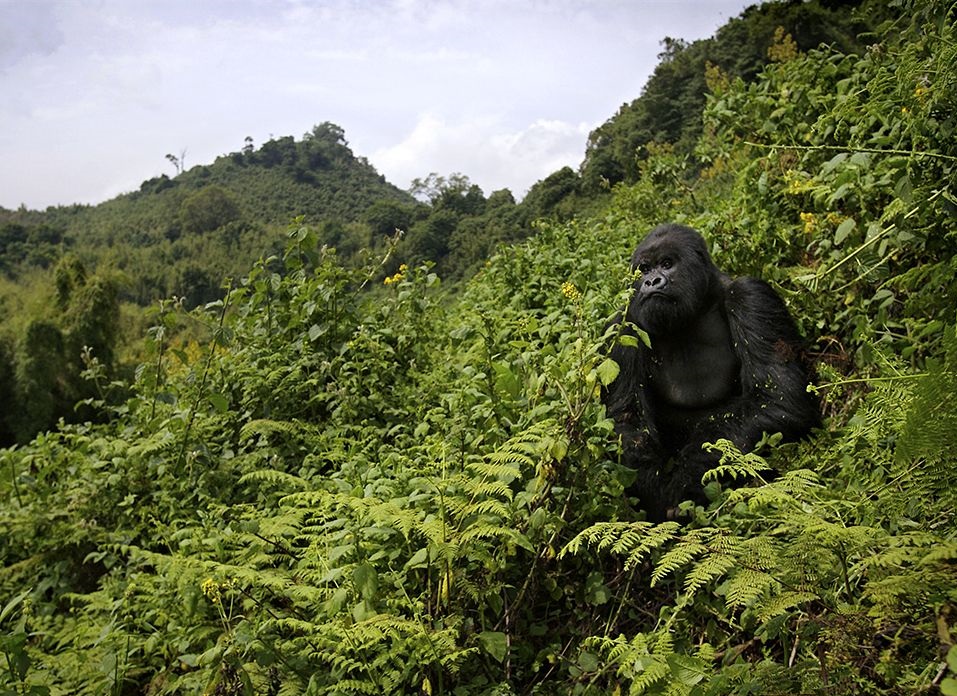 While Kenya and Tanzania excel in traditional big game viewing, they simply cannot compete with Uganda’s primate experiences:
While Kenya and Tanzania excel in traditional big game viewing, they simply cannot compete with Uganda’s primate experiences:
- Mountain gorillas: Uganda protects approximately half of the world’s remaining mountain gorilla population, offering transformative face-to-face encounters impossible in Tanzania or Kenya.
- Chimpanzee tracking: Kibale National Park hosts one of Africa’s largest chimpanzee populations, providing accessible viewing of our closest relatives.
- Primate diversity: Beyond these flagship species, Uganda harbors mangabeys, colobus monkeys, baboons, and numerous other primates in accessible habitats.
As Jane Goodall noted during a visit to Kibale: “Uganda offers something profound that’s missing from the traditional East African safari—the chance to look into the eyes of our primate relatives and recognize our shared heritage.”
The Value Proposition: Exceptional Experiences at Lower Cost
Budget-Friendly Adventure
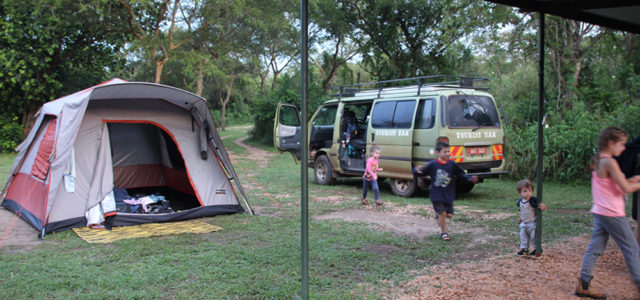 For travelers mindful of costs, Uganda offers substantial savings compared to equivalent experiences in Tanzania and Kenya:
For travelers mindful of costs, Uganda offers substantial savings compared to equivalent experiences in Tanzania and Kenya:
- Accommodation: Comparable lodging typically costs 20-30% less in Uganda than in prime Kenyan and Tanzanian safari destinations.
- Park fees: Uganda’s national park entrance fees remain considerably lower than those of Tanzania, particularly following recent increases in Serengeti and Ngorongoro fees.
- Exclusive experiences: Luxury experiences like gorilla trekking, while still premium-priced, offer unparalleled value considering their rarity and impact.
More Comprehensive Packages
With lower base costs, travelers can afford more comprehensive Uganda safari itineraries:
- Extended stays: Budgets that might cover a basic 6-day safari in Tanzania could fund a 10-day multi-experience adventure safari in Uganda.
- Higher-quality accommodations: The cost differential allows visitors to upgrade their accommodations while still spending less than in neighboring countries.
- Inclusive activities: Funds saved on basic costs can go toward enriching cultural experiences, specialized guides, or photography workshops.
Cultural Authenticity and Engagement
Beyond Commercialized Cultural Experiences
While cultural tourism exists throughout East Africa, Uganda offers more authentic interactions less shaped by mass tourism:
- Genuine encounters: Many communities in Uganda have not yet developed the scripted performances that characterize some cultural experiences in Kenya and Tanzania.
- Working traditions: Visitors encounter living cultural practices integrated into daily life rather than preserved primarily for tourism.
- Community-based tourism: Uganda has pioneered meaningful community tourism initiatives where visitors participate in daily activities rather than simply observing demonstrations.
Linguistic Advantage
English is more widely spoken throughout Uganda compared to rural areas of Tanzania and Kenya, facilitating deeper cultural exchange and understanding between visitors and local communities.
The Water Dimension: Africa’s Aquatic Wonderland
The Mighty Nile
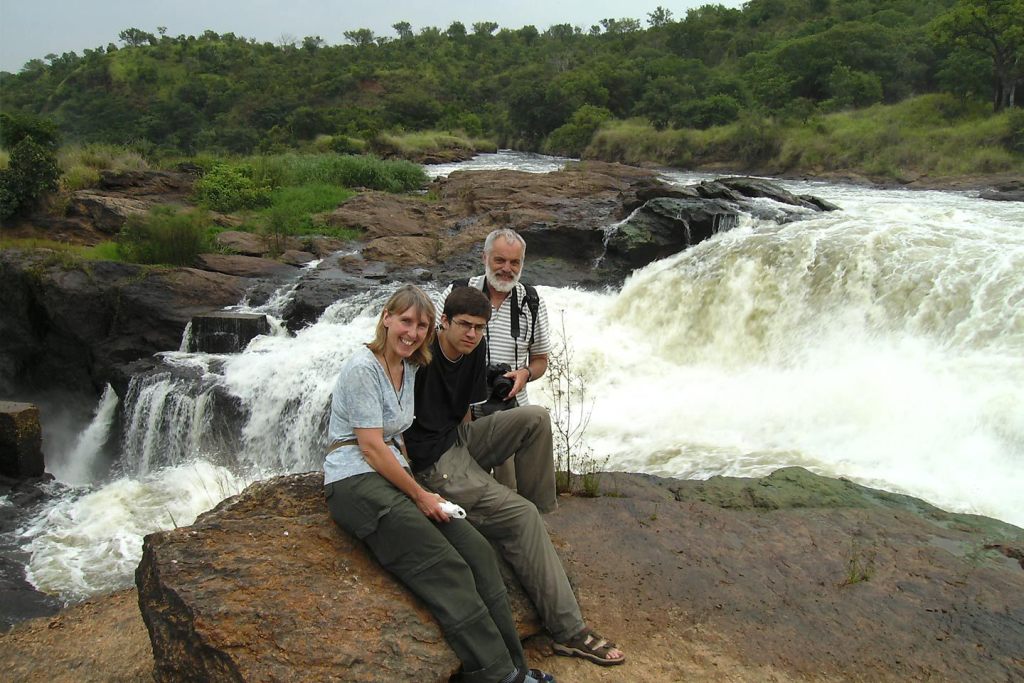 While Kenya and Tanzania feature significant lakes, Uganda’s position at the source of the Nile River creates unparalleled aquatic experiences:
While Kenya and Tanzania feature significant lakes, Uganda’s position at the source of the Nile River creates unparalleled aquatic experiences:
- Adventure opportunities: World-class whitewater rafting at Jinja offers adrenaline experiences unmatched in other East African destinations.
- Murchison Falls: Where the world’s longest river forces itself through a 23-foot gap, creating one of Africa’s most spectacular waterfalls.
- Boat safaris: Water-based wildlife viewing along the Nile and Kazinga Channel provides a relaxing alternative to traditional game drives.
Lake Victoria and Beyond
Uganda’s lakes offer distinctive experiences:
- Island escapes: Lake Victoria’s Ssese Islands provide idyllic retreats following wildlife adventures.
- Crater lakes: The volcanic lakes of the Rwenzori region create otherworldly landscapes for hiking and photography.
- Lake Bunyonyi: Often called “Africa’s second deepest lake,” its scattered islands and terraced hillsides offer scenery unlike anything in neighboring countries.
Conservation Leadership and Sustainable Tourism
Success Stories
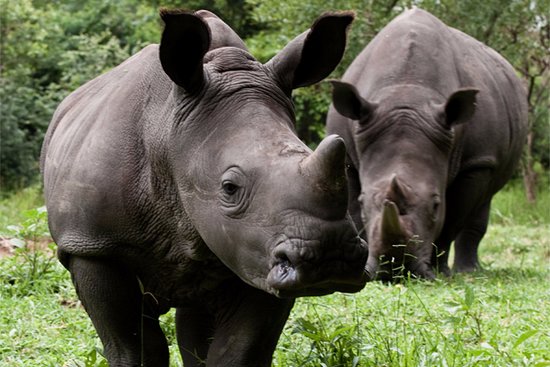 Uganda has demonstrated remarkable conservation success under challenging circumstances:
Uganda has demonstrated remarkable conservation success under challenging circumstances:
- Mountain gorilla recovery: The population has grown from approximately 600 individuals in the 1990s to over 1,000 today.
- Rhino reintroduction: After being poached to extinction in the early 1980s, rhinos are returning through the Ziwa Rhino Sanctuary program.
- Community conservation: Innovative revenue-sharing programs give local communities direct stakes in wildlife protection.
By visiting Uganda, travelers actively support these conservation initiatives where their presence makes a substantial difference.
Responsible Tourism Integration
Uganda has embraced responsible tourism principles:
- Managed impact: Lower visitor numbers allow for better management of environmental impacts on sensitive ecosystems.
- Community benefits: Tourism revenue more directly reaches local communities through employment and revenue-sharing programs.
- Sustainable development: Uganda’s tourism sector is developing with contemporary sustainability principles integrated from the outset rather than retrofitted to established infrastructure.
Challenges as Advantages: The Authenticity Factor
Embracing Imperfection
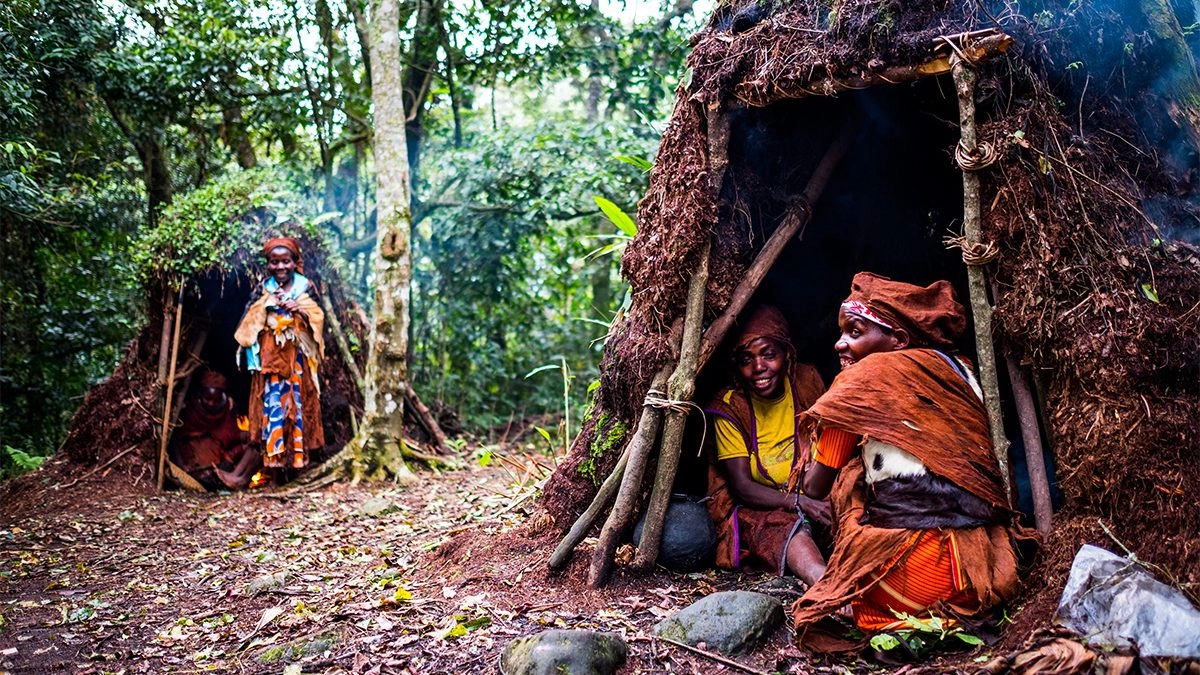 Uganda’s tourism infrastructure, while developing rapidly, still lacks some of the polished efficiency found in parts of Kenya and Tanzania. Yet many travelers find that these “rough edges” enhance rather than detract from the experience:
Uganda’s tourism infrastructure, while developing rapidly, still lacks some of the polished efficiency found in parts of Kenya and Tanzania. Yet many travelers find that these “rough edges” enhance rather than detract from the experience:
- Sense of discovery: There’s a genuine feeling of exploration rather than following a well-trodden path.
- Authentic interactions: Necessity often creates more meaningful engagement with local guides, drivers, and community members.
- Adaptability rewards: Travelers who embrace flexibility are rewarded with unexpected moments of connection and discovery.
The Road Less Traveled—Literally
Uganda’s road network, though continuously improving, still presents occasional challenges that become part of the adventure:
- Remote access: Some magnificent locations remain relatively inaccessible, preserving their pristine character.
- Journey value: The effort required to reach certain destinations enhances the reward of arrival.
- Changing landscape: Visitors witness a country developing its tourism infrastructure thoughtfully rather than experiencing a finished product.
The Verdict: When to Choose Uganda
Uganda shines as the premier East African destination for travelers who:
- Value intimate wildlife encounters over sheer numbers of animals
- Seek diverse experiences beyond traditional game drives
- Place premium importance on primate encounters
- Prefer authentic cultural interactions to choreographed performances
- Enjoy the feeling of discovery away from established tourism circuits
- Appreciate excellent value and budget-friendly options
- Want their tourism dollars to directly support conservation and communities
While Tanzania and Kenya rightfully maintain their status as iconic safari destinations, Uganda offers the discerning traveler something different—a multi-dimensional experience that captures Africa’s essence with fewer crowds, greater diversity, and the satisfaction of exploring paths less traveled.
As Winston Churchill observed after his tour in Uganda in 1907, this truly is “the Pearl of Africa,” a gem whose full brilliance reveals itself to those willing to look beyond the obvious choices.
Uganda Car Rental Services organizes affordable safaris in Uganda for all types of travelers, including solo tourists, couples, families and small groups and in case you would love to book a driver-guided or self-drive adventure, we will be more than happy to offer you our services. Just contact us today by sending an email to [email protected] or call us now on +256-700135510 to speak with the reservations team.





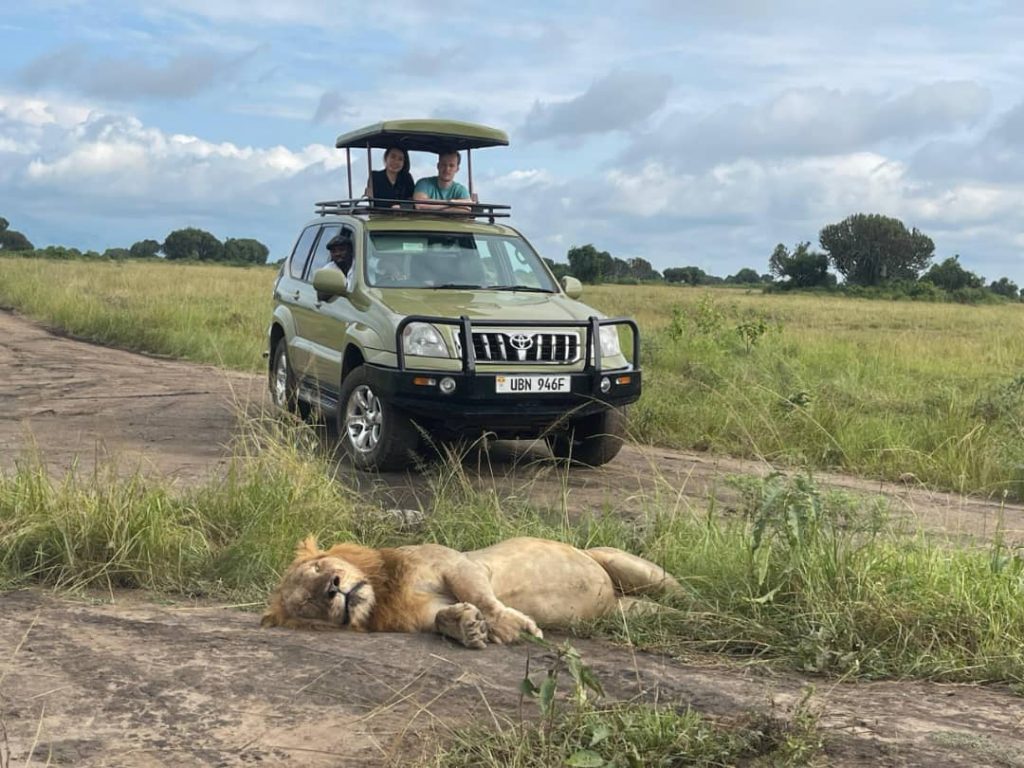
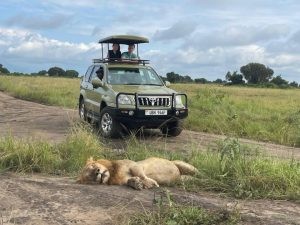
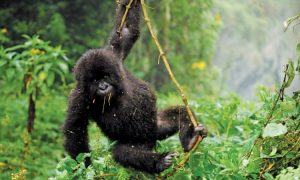
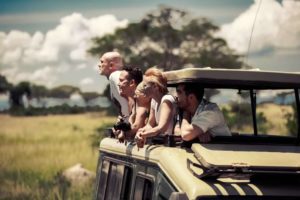

Related Articles
The Best 5 Uganda Safaris by Category You Can’t Miss
The Best 4×4 Vehicles for Hire in Uganda Ideal for Safaris
Easter Car Rental Offers in Uganda: 2025 Special Discounts